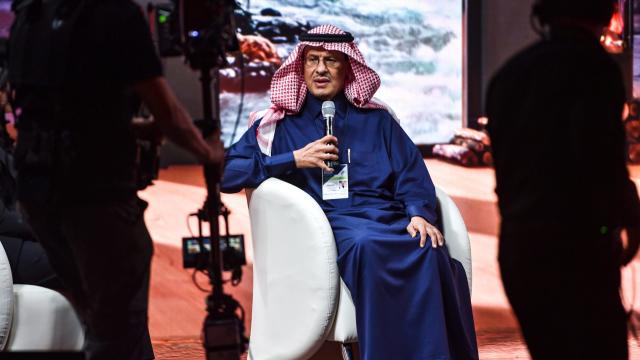Oil-producing heavyweights like Russia and Saudi Arabia will not go quietly into the night. This week, ministers from those and other countries slammed the latest report from the International Energy Agency calling for all new oil and gas development to stop by next year, using some pretty heated (and funny) rhetoric.
The “euphoria” around the transition to clean energy is “dangerous,” Qatar’s Energy Minister Saad Sherida Al Kaabi said during remarks at the St. Petersburg International Economic Forum in Russia on Thursday. Others, like Russian Deputy Prime Minister Alexander Novak, painted a doomsday scenario of unstable oil markets if the world followed the IEA roadmap. Without investments in new oil and gas exploration, he said, “the price for oil will go to, what, $US200 ($257)? Gas prices will skyrocket.” (The price for a barrel of Brent crude this morning was $US71.16 ($91)–rebounding from negative dollars at the height of the pandemic last year–so that’s a pretty big hypothetical jump.)
Some other countries, like Saudi Arabia, played it a little cooler this week. The country’s energy minister, Prince Abdulaziz bin Salman, called the IEA roadmap “a sequel of [the] La La Land movie” when talking to reporters on Tuesday. “Why should I take it seriously?” he asked. “We (Saudi Arabia) are … producing oil and gas at low cost and producing renewables. I urge the world to accept this as a reality: that we’re going to be winners of all of these activities.”
Of course, renewables made up a measly .02% of the nation’s energy use in 2017. Saudi Arabia did said this year it will aim to generate 50% of its energy from renewables by 2030 while it keeps producing fossil fuels; the government has a history of making big promises on renewables and then renegotiating goals downwards, all the while continuing to pump out oil.
But other oil majors — or at least, the forces that shape their financial portfolios and legal futures — do seem to be taking the IEA report pretty seriously, as we saw last week after Chevron, Exxon, and Shell all got a beat down from investors and the legal system. Behind the scenes, OPEC seems to know that the IEA’s new recommendations have pretty serious implications for fossil fuels — and is not happy about the implications for potential future investment in oil and gas. In a report released last month in the wake of the IEA’s announcement, OPEC cautioned that the net-zero scenario “may curb demand (growth) for fossil fuels such as oil and gas, as many policymakers and oil and gas companies use the IEA’s scenarios for their strategic planning.”
Regardless of what happens with other oil companies — and, perhaps, even knowing that investors will be less interested in oil in the coming years as states ramp up new policies — petrostates have, for now, stubbornly indicated that they’re just going to keep drilling. Russia is currently constructing a massive oil project in the Arctic, ironically made possible by the fact that climate change has made it easier to explore for oil in the region. Bin Salman told reporters to stay tuned for announcements on more oil and gas expansions. Qatar, meanwhile, is reportedly chugging along with expanding some of its liquefied natural gas facilities in a $US29 ($37) million investment. It’s clear that the fight to bring down oil production will be massive, global, and can’t just be constrained to companies activists can pressure on Wall Street.
